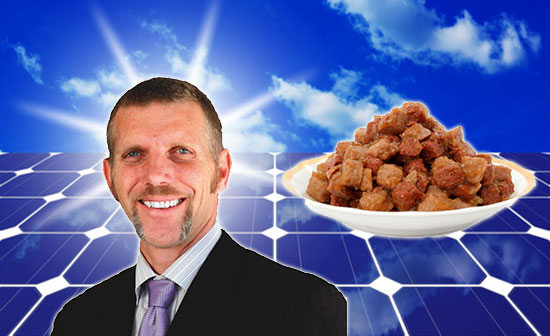Nigel Morris of Solar Business Services has described current renewable industry regulations as being like a “dog’s breakfast”. And while his comments may not come as a surprise to many solar power insiders, the fact that he admitted feeling sympathy for utilities networks just might.
Nigel has been on the road attending several solar power events, which have brought together experts, renewable technology businesses and energy firms. And it is this latter group who he highlighted as being particularly enlightening.
“Almost without exception, the network companies we heard from see minimal benefit – and a whole lot of problems from PV,”he explained.
Hardly surprising, some might say, but Nigel said it is easy to see why they may be disgruntled over the growing popularity of solar power.
“They have no control over when, where or how much PV energy is injected and this has created very real technical challenges for them in controlling voltage and distortion,” he stated.
“This wasn’t a problem 12 or 18 months ago, but as the penetration of PV has accelerated, it has become an increasingly significant issue.”
He claimed these businesses do not have the infrastructure to effectively cope with massive reverse flows of energy.
“The current dog’s breakfast of ever-changing rules is creating unnecessary complexity and a myriad of unknown factors,” Nigel continued.
These regulations have often been brought in because energy firms are trying to cope with declining revenue streams, while generating enough money to invest in network changes. And due to the fact they usually apply differently from state to state and on a federal basis, this just adds to the confusion, he commented. Not only this, but governments across the nation often focus their policies on residential applications rather than commercial and industrial ones. Morris speculated this is because while solar PV generation fits commercial loads beautifully, politicians are keen to splash the benefits on voter-rich communities.
But are more regulations always a bad idea? Not according to Nigel, who said they can often bring more clarity to an issue and ensure everyone is in the same boat. His comments followed recent remarks by Professor Tim Flannery of the Climate Commission, who claimed Australia is well-positioned to take advantage of a solar boom. System costs have dropped 75 per cent in the last four years, he added, with solar energy expected to be among the cheapest forms of power available by 2030.


 RSS - Posts
RSS - Posts



Speak Your Mind